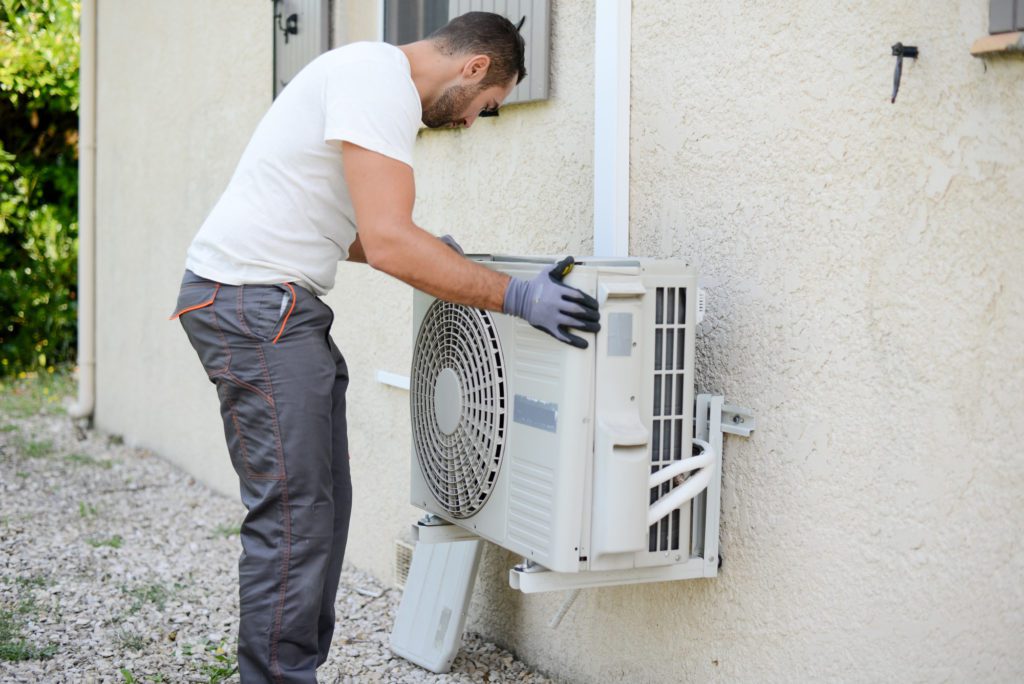
Unmasking the Mysteries: The Most Common HVAC Repairs
The heating, ventilation, and air conditioning (HVAC) system is at the heart of a comfortable living or working environment. It functions to provide clean air, regulate temperatures, and ensure optimal humidity levels, hence maintaining a healthy and cozy indoor atmosphere. Despite their critical roles, HVAC systems, like any other mechanical systems, are prone to various issues that might require immediate repairs. Let’s take a deeper look into the most common HVAC repairs and understand how to potentially prevent them.
COMPARE QUOTES NOWFaulty Thermostats
The thermostat is the control center of your HVAC system. When it malfunctions, the entire system becomes unable to maintain the desired indoor temperature. Some of the most common problems include unresponsive thermostats, inaccurate temperature readings, or a complete system shutdown. In such cases, the thermostat might need a simple recalibration, replacement of batteries, or, in worst-case scenarios, a complete replacement.
Leaky Ducts
Ductwork is essential in the HVAC system, as it transports conditioned air throughout your home or office. Over time, these ducts can develop leaks due to wear and tear, poorly connected ducts, or rodent damage. Leaky ducts can significantly lower the HVAC system’s efficiency by allowing conditioned air to escape, leading to higher energy bills. Sealing the leaks or replacing damaged sections are the most common repair methods for this issue.
Dirty or Clogged Filters
HVAC filters serve to clean the air that circulates through your HVAC system. Over time, these filters can become clogged with dust, pollen, and other airborne particles, reducing air flow and forcing the system to work harder to maintain the set temperature. This not only leads to increased energy usage but also overheats the system, potentially causing other components to fail. Regular filter replacement or cleaning, typically every 1-3 months, can help prevent this issue.
Refrigerant Leaks
The refrigerant is the lifeline of your air conditioning system. It’s responsible for absorbing and releasing heat to cool your space. If your system has a refrigerant leak, it won’t cool effectively, and it may also pose environmental risks. Refrigerant leaks should be repaired as soon as they’re detected, and the system should be recharged to the manufacturer-specified levels. This process should always be handled by a trained HVAC technician due to the technical and environmental considerations involved.
Electrical Control Failure
The electrical components of an HVAC system, including circuit boards, capacitors, and wiring, can also be sources of problems. Wear and tear or power surges can cause these parts to fail. When this happens, your HVAC system may run inconsistently or not at all. These issues require professional attention as they involve dealing with high-voltage components.
Ignition Problems
Ignition problems are common in heating systems like furnaces. These problems might result from a malfunctioning ignition sensor, a faulty ignition switch, or issues with the gas supply. The result is a furnace that can’t produce heat. Ignition problems require professional repair to ensure safety and restore your heating system’s functionality.
Blower Motor Failure
The blower motor powers the fan that circulates air throughout your HVAC system. If it fails, the system won’t be able to circulate conditioned air, leading to no cooling or heating in your space. The motor might need a simple repair, like replacing the capacitor, or it might need a complete replacement if it’s significantly damaged.
HVAC Prevention and Maintenance
While the above list of repairs covers some of the most common HVAC issues, it’s important to note that regular maintenance can prevent many of these problems. Scheduling routine HVAC check-ups with a professional can help identify potential issues before they escalate into significant problems. These regular checks often involve inspecting the system’s components, cleaning, and making necessary adjustments.
Regular maintenance tasks include:
- Changing or cleaning air filters
- Inspecting and cleaning evaporator and condenser coils
- Checking refrigerant levels
- Assessing the blower motor and belt
- Evaluating overall system operation.
- Not only can this routine upkeep prevent major repairs, but it can also extend the life of your HVAC system and enhance its efficiency.
In addition to professional maintenance, homeowners can perform some simple tasks to keep their HVAC system in good shape. This includes regularly replacing air filters, keeping the outdoor unit free from debris, and ensuring vents and ducts inside the house are not blocked. These tasks will aid in maintaining a smooth airflow, keeping your system functioning optimally.
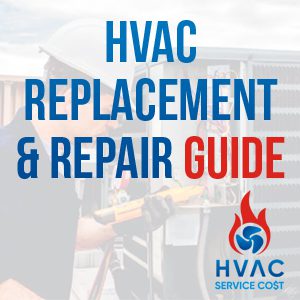
When to Seek Professional Help
While regular maintenance and vigilance can ward off many HVAC issues, it’s important to know when professional help is needed. Warning signs of a potential problem include unusual noises, irregular cycling, unexpected increases in energy bills, and a sudden inability to maintain the desired indoor temperature. If you encounter these warning signs, it’s crucial to contact a professional HVAC technician promptly to prevent further damage.
Professional HVAC technicians have the necessary expertise to diagnose and repair various HVAC problems efficiently and safely. They’re equipped to handle everything from refrigerant leaks to electrical control failures, ensuring your system is repaired correctly and is back up and running in no time.
COMPARE QUOTES NOWWhile HVAC systems are designed to provide years of comfort, they aren’t immune to wear and tear, and occasional malfunctions can occur. By understanding the most common HVAC repairs, homeowners can better recognize potential issues and seek prompt assistance. Regular maintenance is key in preventing these common problems, promoting system longevity, and ensuring a comfortable, healthy indoor environment. Remember, a well-maintained HVAC system is not just about comfort. It contributes to energy efficiency, cost savings, and the overall health of your living or working space. So, stay informed, stay vigilant, and when in doubt, don’t hesitate to call a professional. After all, in the realm of HVAC systems, an ounce of prevention is worth a pound of cure.
What is the Cause of Most HVAC System Problems?
Your HVAC (Heating, Ventilation, and Air Conditioning) system plays a crucial role in maintaining a comfortable indoor environment. However, like any complex system, HVAC systems can encounter various issues over time. Understanding the common causes of HVAC system problems can help you identify and address them promptly. Here are the primary factors that contribute to most HVAC system problems:
1. Lack of Regular Maintenance
- Inadequate maintenance is one of the leading causes of HVAC system problems.
- Neglecting routine maintenance can result in reduced system efficiency, increased energy consumption, and frequent breakdowns.
- Components such as filters, coils, and fans require regular cleaning and inspection to ensure optimal performance.
2. Dirty Air Filters
- Dirty air filters can restrict airflow and strain the HVAC system, leading to reduced efficiency and potential damage.
- Clogged filters can also worsen indoor air quality, causing respiratory issues and discomfort.
- Regularly replacing or cleaning air filters is crucial for the smooth operation of your HVAC system.
3. Wear and Tear
- Over time, HVAC system components can experience wear and tear, affecting their performance and lifespan.
- Continuous use without regular maintenance and timely repairs can accelerate the deterioration process.
- Common issues include worn-out belts, faulty motors, and corroded electrical connections.
4. Refrigerant Leaks
- Refrigerant leaks can occur due to system vibrations, corrosion, or poor installation.
- Low refrigerant levels can cause insufficient cooling/heating, increased energy consumption, and potential damage to the compressor.
- Detecting and repairing refrigerant leaks should be done by qualified HVAC professionals.
5. Electrical Problems
- Electrical issues such as faulty wiring, tripped breakers, or damaged capacitors can disrupt the operation of your HVAC system.
- Electrical malfunctions can lead to system failures, inconsistent performance, or complete shutdowns.
- These problems require prompt attention from licensed electricians or HVAC technicians.
6. Improper Installation or Sizing
- Incorrect installation or sizing of HVAC systems can result in various problems.
- An undersized unit may struggle to meet the cooling/heating demands of your space, leading to inefficient operation and discomfort.
- An oversized unit may short-cycle, resulting in frequent on-off cycling and unnecessary wear on the components.
7. Lack of Airflow Balancing
- Proper airflow balancing is crucial to ensure consistent comfort throughout your space.
- Improperly balanced airflow can lead to hot or cold spots, reduced efficiency, and strain on the HVAC system.
- Balancing airflow involves adjusting dampers, registers, and vents to optimize air distribution.
8. Age of the System
- HVAC systems have a limited lifespan, typically ranging from 10 to 15 years, depending on usage and maintenance.
- Aging systems are more prone to breakdowns, reduced efficiency, and costly repairs.
- If your HVAC system is nearing its expected lifespan, consider planning for a replacement to avoid frequent problems.
Regular maintenance, timely repairs, and professional inspections are key to preventing and resolving most HVAC system problems. By addressing these common causes proactively, you can maximize the lifespan and efficiency of your HVAC system, ensuring a comfortable indoor environment for years to come.
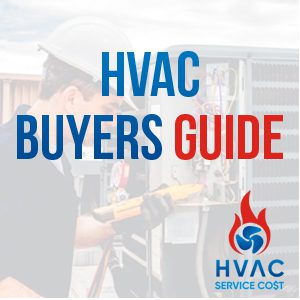
Top 5 Signs Your HVAC System Needs Maintenance
Regular maintenance is essential to keep your HVAC system running smoothly and efficiently. Ignoring signs of potential issues can lead to more significant problems and costly repairs down the line. Here are the top five signs that indicate your HVAC system requires maintenance:
1. Poor Airflow
- Insufficient airflow from your vents could indicate a problem with your HVAC system.
- If you notice weak or uneven airflow, it could be due to a clogged air filter, blocked ductwork, or malfunctioning blower motor.
- Reduced airflow can lead to decreased comfort, inefficient heating or cooling, and strain on the system.
2. Inconsistent Temperatures
- If you experience inconsistent temperatures throughout your home, it may indicate a problem with your HVAC system.
- Uneven heating or cooling can be caused by issues such as a faulty thermostat, blocked vents, leaky ductwork, or improper system balancing.
- It’s important to address this issue to ensure consistent comfort in all areas of your home.
3. Strange Noises
- Unusual noises coming from your HVAC system can be a clear sign that something is wrong.
- Rattling, grinding, squealing, or banging sounds may indicate loose components, worn-out parts, or a malfunctioning motor.
- These noises should not be ignored, as they can indicate potential damage or system failure.
4. Increased Energy Bills
- A sudden increase in your energy bills without any change in usage patterns could be a sign of HVAC system inefficiency.
- Issues such as dirty filters, clogged coils, or malfunctioning components can force your system to work harder and consume more energy.
- Regular maintenance can help identify and resolve these issues, improving your system’s energy efficiency and reducing your utility costs.
5. Frequent On/Off Cycling
- If your HVAC system frequently turns on and off (short cycling), it may indicate an underlying problem.
- Short cycling can be caused by issues like a malfunctioning thermostat, dirty filters, refrigerant leaks, or an oversized system.
- Not only does this impact your comfort, but it also puts additional strain on the system, leading to increased wear and tear.
If you notice any of these signs, it’s important to schedule maintenance with a qualified HVAC technician. Regular maintenance can address these issues, optimize system performance, and prolong the lifespan of your HVAC system. Don’t wait until a minor issue becomes a major problem—stay proactive and ensure the continued efficiency and reliability of your HVAC system.
Dirty HVAC Air Filters: Does It Matter?
Your HVAC system’s air filter plays a vital role in maintaining indoor air quality and protecting the system from debris and dust. Over time, the air filter can become dirty and clogged, affecting the performance and efficiency of your HVAC unit. Let’s explore why a dirty air filter matters and the potential consequences of neglecting its maintenance.
1. Reduced System Efficiency
- A dirty air filter restricts the airflow that your HVAC system needs to operate efficiently.
- Restricted airflow causes your system to work harder to push air through the clogged filter, leading to decreased efficiency.
- Reduced airflow puts a strain on the blower motor, causing it to consume more energy and potentially leading to premature system failure.
2. Poor Indoor Air Quality
- The primary function of the air filter is to capture dust, pollen, pet dander, and other airborne particles, improving the indoor air quality.
- A dirty filter cannot effectively trap these particles, allowing them to circulate freely in your home.
- Poor indoor air quality can lead to respiratory problems, allergies, and discomfort for you and your family.
3. Increased Energy Consumption
- When your HVAC system has to work harder due to a dirty air filter, it consumes more energy.
- The increased energy consumption leads to higher utility bills, impacting your monthly expenses.
- Regularly replacing or cleaning the air filter helps maintain optimal airflow and reduces energy consumption.
4. Strain on System Components
- Restricted airflow caused by a dirty filter can put strain on various components of your HVAC system.
- The blower motor, heat exchanger, and evaporator coil may experience unnecessary wear and tear, reducing their lifespan.
- The added strain can lead to more frequent breakdowns and the need for costly repairs.
5. Decreased Comfort
- A dirty air filter affects the temperature and humidity control in your home.
- With reduced airflow, the HVAC system struggles to distribute conditioned air evenly, resulting in uneven temperatures and discomfort.
- Additionally, the reduced airflow can impact the effectiveness of dehumidification, leading to higher humidity levels inside your home.
Regularly changing or cleaning your HVAC system’s air filter is crucial to ensure optimal performance and indoor air quality. The frequency of filter maintenance depends on various factors, including the filter type, household conditions, and the presence of pets or allergies. It’s recommended to inspect and replace or clean the filter every 1-3 months or as recommended by the manufacturer.
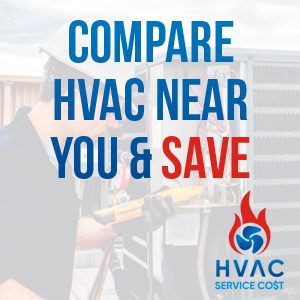
Maintaining a clean air filter not only benefits your HVAC system’s performance but also promotes a healthier living environment for you and your family. Take proactive measures to keep your air filters clean and remember to consult with a qualified HVAC professional for guidance on proper filter maintenance and replacement.
The Cost to Fix Most Common HVAC Problems
Experiencing HVAC problems can be frustrating, and addressing them promptly is essential to restore comfort and efficiency to your home. However, it’s important to be aware of the potential costs associated with fixing common HVAC issues. Here are the average prices for professionally fixing some of the most common HVAC problems:
1. Faulty Thermostat: Average Cost: $100 – $300
A malfunctioning thermostat can cause temperature inconsistencies or incorrect readings. The cost depends on the type of thermostat and whether it requires repair or replacement.
2. Refrigerant Leak: Average Cost: $200 – $1,500
A refrigerant leak can cause insufficient cooling/heating and potentially damage the compressor. The cost varies depending on the severity of the leak and the amount of refrigerant required.
3. Blown Capacitor: Average Cost: $100 – $400
A blown capacitor can result in the HVAC unit not starting or running erratically. The cost depends on the type of capacitor needed and the complexity of the replacement.
4. Frozen Evaporator Coil: Average Cost: $200 – $1,000
A frozen evaporator coil can be caused by issues such as low refrigerant levels, dirty filters, or airflow problems. The cost depends on the underlying cause and the necessary repairs or maintenance.
5. Clogged Condensate Drain Line: Average Cost: $75 – $250
A clogged condensate drain line can cause water leakage and potential water damage. The cost typically includes clearing the clog and ensuring proper drainage.
6. Faulty Fan Motor: Average Cost: $250 – $800
A malfunctioning fan motor can lead to improper airflow or complete system failure. The cost depends on the type of motor and whether it requires repair or replacement.
7. Ductwork Leaks: Average Cost: $300 – $1,000
Ductwork leaks can result in reduced efficiency, uneven airflow, and increased energy consumption. The cost varies depending on the extent of the leaks and the necessary repairs or sealing.
8. Compressor Failure: Average Cost: $1,500 – $3,500
Compressor failure is a major issue that may require a complete replacement of the compressor unit. The cost includes the new compressor unit, labor, and additional materials.
COMPARE QUOTES NOWPlease note that these average costs are estimates and can vary depending on factors such as the location, HVAC system size, and the specific requirements of your home. Additionally, it’s always recommended to consult with licensed HVAC professionals to assess the problem accurately and provide a detailed cost estimate for your specific situation.
Investing in regular HVAC maintenance and addressing issues promptly can help prevent more costly repairs or system failures in the long run. Remember to choose reputable HVAC professionals with experience and proper certifications to ensure quality service and reliable solutions for your HVAC problems.
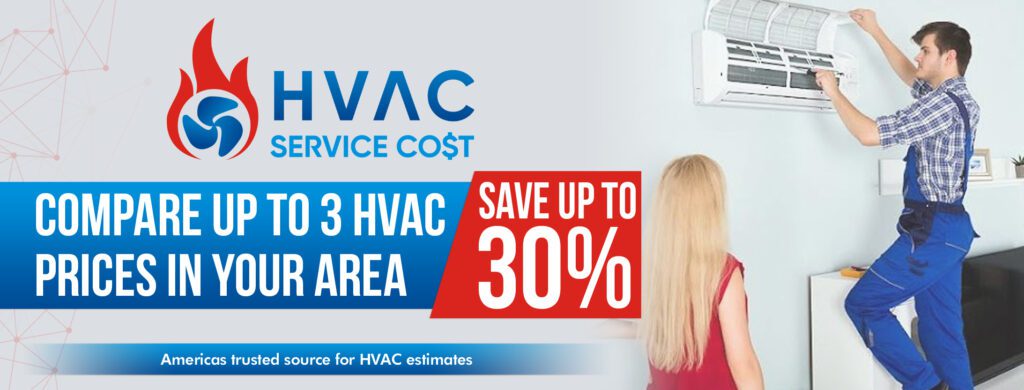
Top 10 Best HVAC Service Providers in 2023
When it comes to HVAC services, it’s important to choose a reliable and reputable provider to ensure quality workmanship and customer satisfaction. Here are the top 10 HVAC service providers in 2023:
ABC Heating & Cooling
With a solid reputation for excellent customer service, ABC Heating & Cooling offers comprehensive HVAC services, including installation, repairs, and maintenance. Their team of certified technicians is known for their expertise, professionalism, and prompt response.
XYZ HVAC Solutions
XYZ HVAC Solutions is renowned for their wide range of HVAC services, including installations, repairs, and energy-efficient system upgrades. They prioritize customer satisfaction and are known for their competitive pricing and attention to detail.
Cool Breeze Air Conditioning
Cool Breeze Air Conditioning specializes in residential and commercial HVAC services, providing top-notch installations, repairs, and maintenance solutions. Their experienced technicians are known for their efficiency, reliability, and commitment to customer care.
Comfort Masters Heating & Cooling
Comfort Masters Heating & Cooling offers exceptional HVAC services, including system installations, repairs, and indoor air quality solutions. They are recognized for their expertise in handling complex HVAC issues and delivering reliable solutions.
AirTech Heating & Cooling
AirTech Heating & Cooling is a trusted provider of HVAC services, catering to both residential and commercial clients. They offer a wide range of services, including installations, repairs, and routine maintenance, with a focus on energy efficiency and customer satisfaction.
Reliable Air Solutions
Reliable Air Solutions is known for its prompt and reliable HVAC services, ensuring optimal comfort for homes and businesses. Their skilled technicians are well-versed in diagnosing and resolving HVAC issues efficiently and effectively.
Elite Heating & Air Conditioning
Elite Heating & Air Conditioning is committed to providing high-quality HVAC services, from system installations to repairs and ongoing maintenance. Their team of experts strives to deliver superior customer service and energy-efficient solutions tailored to each client’s needs.
AirMax HVAC Services
AirMax HVAC Services offers comprehensive heating and cooling solutions, including installations, repairs, and preventive maintenance. They are dedicated to delivering outstanding workmanship, prompt service, and customer satisfaction.
Precision Climate Solutions
Precision Climate Solutions specializes in residential and commercial HVAC services, providing top-of-the-line installations, repairs, and system optimizations. They prioritize energy efficiency and customer comfort, ensuring long-lasting solutions for their clients.
ProTech HVAC Services
ProTech HVAC Services is known for its expertise in HVAC installations, repairs, and maintenance for residential and commercial properties. They pride themselves on their knowledgeable technicians, honest recommendations, and affordable pricing.
COMPARE QUOTES NOWThese top HVAC service providers have consistently demonstrated their commitment to delivering exceptional service, reliable solutions, and customer satisfaction. When choosing an HVAC service provider, be sure to consider your specific needs, budget, and location to find the best match for your requirements.
The Importance of Proper HVAC Maintenance and Trained Technicians
Proper maintenance of your HVAC system is crucial to ensure efficient operation, optimal comfort, and lower energy costs. It’s recommended to enlist the expertise of trained service technicians who can perform routine maintenance tasks and address any issues that may arise. Let’s explore the significance of proper maintenance and the role of trained technicians in keeping your HVAC system in top shape.
Enhanced Energy Efficiency
Regular HVAC maintenance, conducted by trained technicians, helps optimize the energy efficiency of your system. Here’s how:
- Cleaning and Inspecting Components: A well-maintained HVAC system ensures that all components, such as coils, filters, and fan blades, are clean and free from debris. This allows air to flow smoothly, reducing strain on the system and improving energy efficiency.
- Tightening Electrical Connections: Loose electrical connections can lead to system inefficiency and higher energy consumption. Trained technicians can identify and tighten these connections, ensuring optimal electrical performance.
- Lubricating Moving Parts: Friction in moving parts can increase energy usage. Regular lubrication by trained technicians minimizes friction, resulting in smoother operation and reduced energy costs.

Improved System Performance
Proper maintenance, carried out by trained technicians, helps ensure that your HVAC system operates at its peak performance. Here’s why it matters:
- Preventing Breakdowns: Regular inspections and maintenance help identify potential issues before they escalate into major problems. Trained technicians can detect warning signs, such as worn-out parts or faulty components, and take corrective measures, preventing unexpected breakdowns.
- Optimizing Airflow: Trained technicians understand the importance of proper airflow in maintaining system efficiency. They can assess and adjust dampers, fans, and registers to achieve balanced airflow, providing consistent cooling or heating throughout your space.
- Calibrating Thermostats: Accurate thermostat calibration is vital for maintaining desired temperatures. Trained technicians can calibrate and optimize thermostats to ensure accurate temperature readings and efficient system operation.
Extended System Lifespan
Regular maintenance, performed by trained technicians, helps extend the lifespan of your HVAC system. Here’s how:
- Timely Repairs and Component Replacement: Trained technicians can identify and address minor issues promptly, preventing them from developing into major problems that can damage the system. They can also recommend necessary component replacements, ensuring the longevity of your HVAC system.
- Cleaning and Preventing System Contaminants: Proper maintenance includes cleaning and sanitizing components, such as coils and condensate pans, to prevent the growth of mold, bacteria, and other contaminants. This helps maintain system integrity and extends its lifespan.
Peace of Mind
Engaging trained HVAC technicians for maintenance tasks provides peace of mind, knowing that your system is in capable hands. Here’s why it matters:
- Professional Expertise: Trained technicians have the knowledge, skills, and experience to handle various HVAC system complexities. They are familiar with safety protocols, best practices, and industry standards, ensuring a thorough and reliable service.
- Warranty Protection: Many HVAC manufacturers require regular maintenance by trained technicians to keep the warranty valid. By scheduling professional maintenance, you ensure that your system remains covered by the manufacturer’s warranty.
Regular HVAC maintenance performed by trained technicians is essential for ensuring the longevity, efficiency, and optimal performance of your system. Proper maintenance can enhance energy efficiency, prevent breakdowns, extend the system’s lifespan, and provide you with peace of mind. By investing in routine maintenance and relying on trained professionals, you can enjoy a comfortable indoor environment while minimizing energy costs and maximizing the lifespan of your HVAC system.
COMPARE QUOTES NOWThe Best Low-Maintenance HVAC Systems in 2023
When selecting an HVAC system, opting for a low-maintenance option can save you time, effort, and potentially reduce long-term costs. These systems require minimal upkeep while delivering optimal performance and energy efficiency. Here are some of the best low-maintenance HVAC systems available in 2023:
Ductless Mini-Split Systems
Ductless mini-split systems offer excellent energy efficiency and require minimal maintenance. With individual air handlers in each room, there are no ducts to clean or maintain. Regular filter cleaning or replacement is necessary, but overall maintenance requirements are relatively low.
Geothermal Heat Pumps
Geothermal heat pumps utilize the stable temperature of the earth to heat and cool your home. These systems have fewer moving parts, reducing the risk of breakdowns and the need for frequent maintenance. Properly installed and maintained, geothermal systems can last for decades with minimal maintenance requirements.
Variable Refrigerant Flow (VRF) Systems
VRF systems provide energy-efficient heating and cooling by adjusting refrigerant flow based on demand. These systems have self-cleaning features that reduce the risk of clogs and maintenance needs. Routine maintenance typically includes filter cleaning or replacement and inspecting electrical connections.
High-Efficiency Air Conditioning Systems
High-efficiency air conditioning systems often feature advanced technology and components designed to reduce maintenance needs. These systems incorporate features like self-cleaning coils, improved air filtration, and advanced diagnostics to ensure optimal performance with minimal maintenance.
Smart HVAC Systems
Smart HVAC systems utilize advanced technology and automation to optimize energy usage and performance. These systems often include self-diagnostic capabilities, which can detect and alert you to potential issues before they escalate. By allowing remote monitoring and control, smart systems simplify maintenance and enable timely adjustments.
While low-maintenance HVAC systems offer convenience, it’s important to note that regular professional maintenance is still essential to ensure optimal performance and longevity. Routine maintenance tasks, such as cleaning coils, checking refrigerant levels, and inspecting electrical connections, are crucial even for low-maintenance systems.

Consulting with HVAC professionals can help you choose the best low-maintenance system that suits your specific needs. They can guide you on proper maintenance practices and provide valuable insights into system longevity and efficiency. Remember, while low-maintenance systems can reduce the frequency of maintenance tasks, they should not be completely neglected. Regular maintenance, including professional inspections, is key to keeping your HVAC system running smoothly and efficiently for years to come.
Additional Maintenance Tips for Residential HVAC Systems
In addition to selecting low-maintenance HVAC systems, there are several other maintenance tasks you can perform to keep your system running smoothly. These tasks can help prevent potential issues and extend the lifespan of your HVAC system. Here are some additional maintenance tips to consider:
Clean Dirty Burners and Furnace Filters
Dirty burners can affect the efficiency of your furnace, leading to inadequate heating and higher energy consumption. Regularly inspect and clean the burners to ensure optimal performance. Additionally, check and clean or replace furnace filters as recommended by the manufacturer. Dirty filters can restrict airflow, decrease system efficiency, and negatively impact indoor air quality.
Address Small Problems Promptly
Even seemingly minor issues with your HVAC system should be addressed promptly. Ignoring small problems can lead to more significant issues and potentially costly repairs down the line. If you notice unusual noises, unusual odors, or changes in system performance, contact a professional technician to diagnose and resolve the problem.
Check for Blown Fuses
If your HVAC system suddenly stops working, check for blown fuses in the electrical panel. Blown fuses can occur due to power surges or electrical issues. If you find a blown fuse, replace it with a new one of the same rating. If the problem persists, contact a professional HVAC technician to inspect the electrical system.
Clean Dirty Condenser Coils
Outdoor HVAC units have condenser coils that can accumulate dirt, dust, and debris over time. Dirty condenser coils can reduce system efficiency and hinder heat transfer. Regularly clean the coils by gently spraying them with water and removing any visible debris. For more thorough cleaning, consult a professional HVAC technician.
COMPARE QUOTES NOWPerforming these maintenance tasks regularly can help prevent potential problems, improve energy efficiency, and extend the lifespan of your HVAC system. However, keep in mind that certain maintenance tasks, such as cleaning condenser coils, may require professional assistance, especially if you are not familiar with the process.
By taking a proactive approach to HVAC maintenance and promptly addressing any issues, you can ensure the optimal performance and longevity of your residential HVAC system. Regular maintenance, both by the homeowner and professional technicians, is key to keeping your system in top condition and enjoying a comfortable indoor environment year-round.

Ensuring the Longevity of Your HVAC System
Taking care of your HVAC system is essential for maintaining comfort, energy efficiency, and preventing costly repairs. By understanding common HVAC problems, conducting regular maintenance, and promptly addressing issues, you can ensure the longevity and optimal performance of your HVAC system. Here are some key takeaways to remember:
- Stay vigilant: Be aware of the signs that indicate your HVAC system may require attention, such as strange noises, inconsistent temperatures, or increased energy bills. Addressing problems early can prevent them from escalating into major issues.
- Regular maintenance: Perform routine maintenance tasks, such as changing filters, cleaning coils, and inspecting components, according to the manufacturer’s guidelines. Regular maintenance keeps your system running efficiently and helps prevent problems.
- Professional expertise: When encountering complex HVAC issues or when it’s time for system inspections, repairs, or replacements, rely on the expertise of licensed HVAC technicians. They have the knowledge, skills, and tools to diagnose problems accurately and provide appropriate solutions.
- Address common issues: Be aware of common HVAC problems, including thermostat malfunctions, refrigerant leaks, and clogged filters. Understanding these issues can help you identify and address them promptly, preventing further damage and improving system efficiency.
- Invest in low-maintenance systems: Consider selecting HVAC systems known for their low-maintenance features. These systems, such as ductless mini-split systems or geothermal heat pumps, can reduce the need for frequent maintenance tasks and provide long-term convenience.
Remember, each HVAC system is unique, and maintenance requirements may vary. Refer to your system’s manual for specific maintenance guidelines and consult with HVAC professionals for personalized advice. By taking a proactive approach to HVAC system care, you can ensure that your system operates efficiently, maintains indoor comfort, and lasts for years to come. Regular maintenance, prompt repairs, and professional expertise are the keys to enjoying a reliable and efficient HVAC system that provides comfort and peace of mind.
COMPARE QUOTES NOW


Leave a Reply